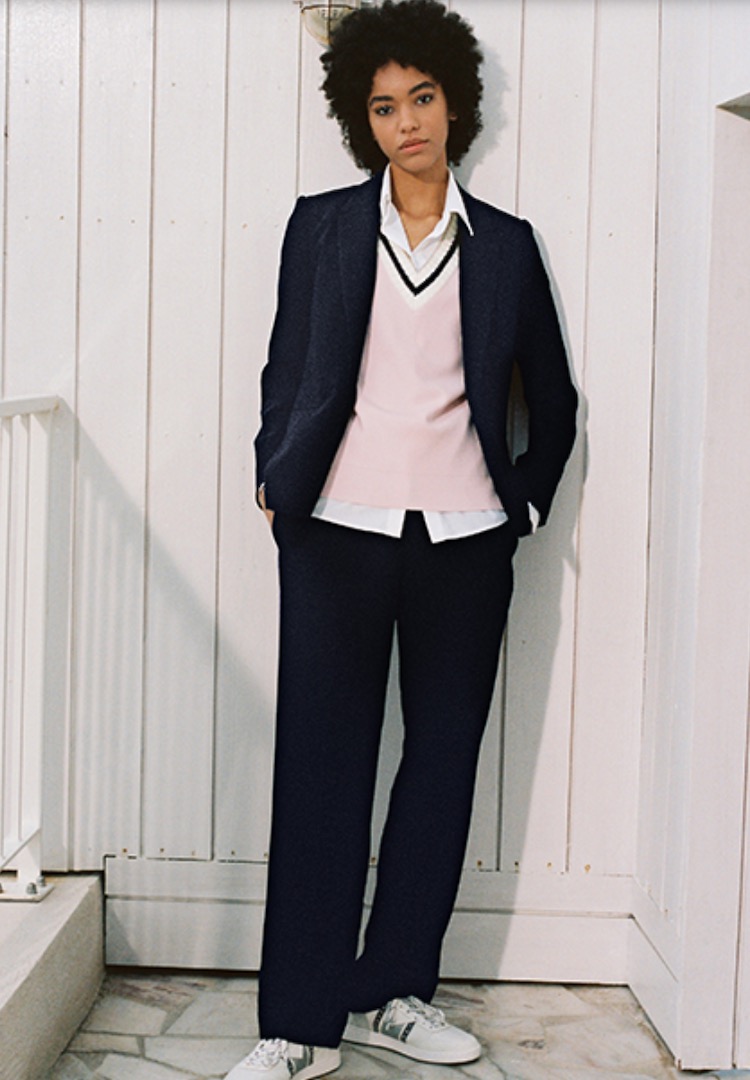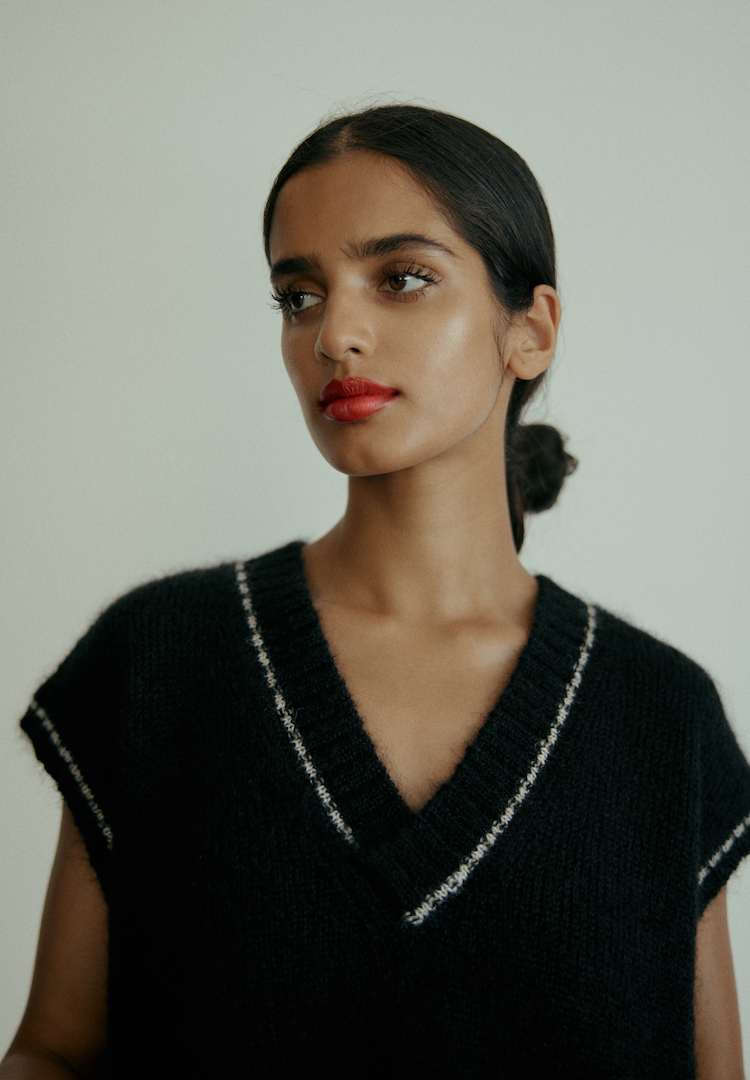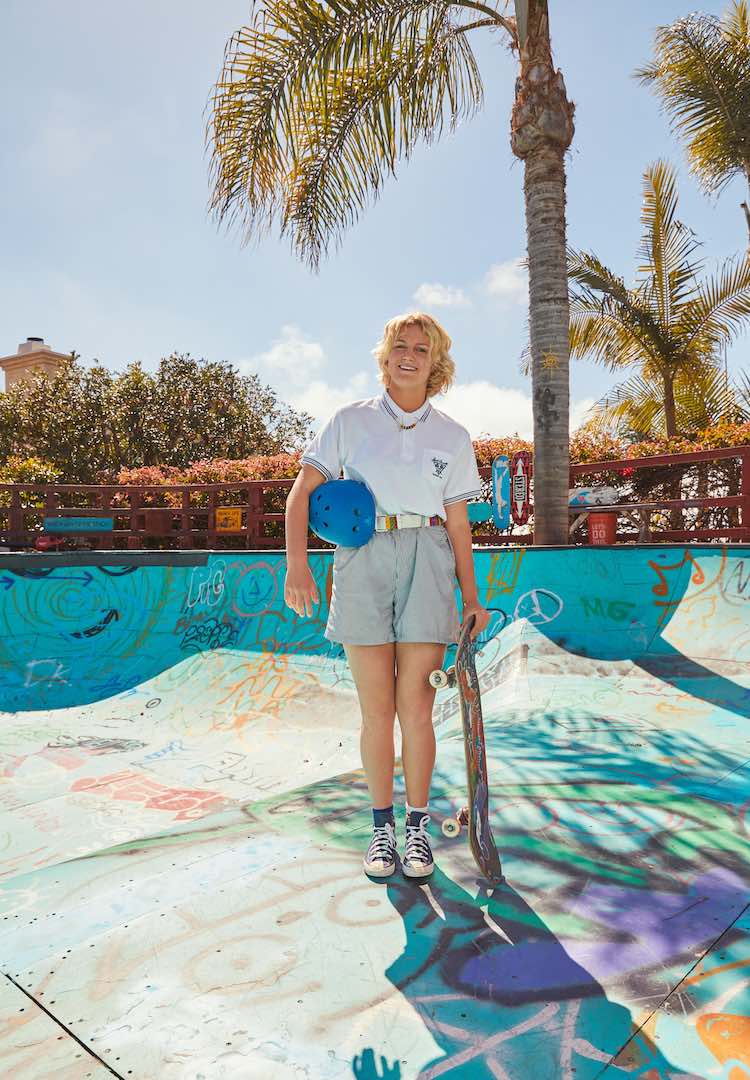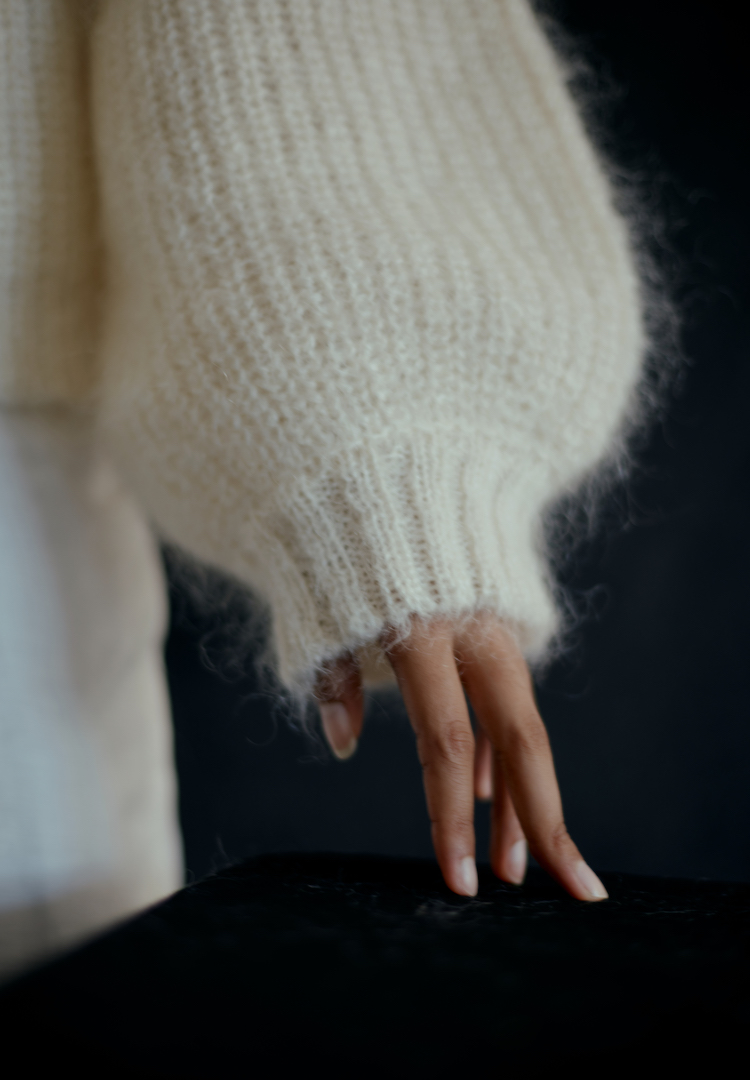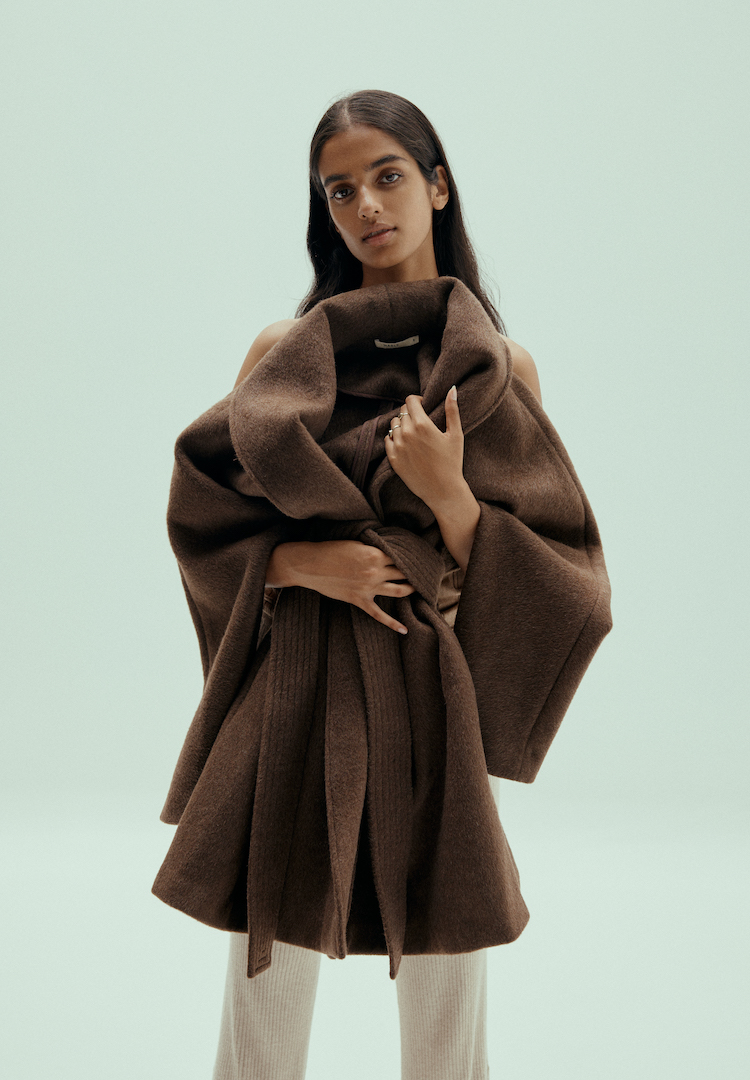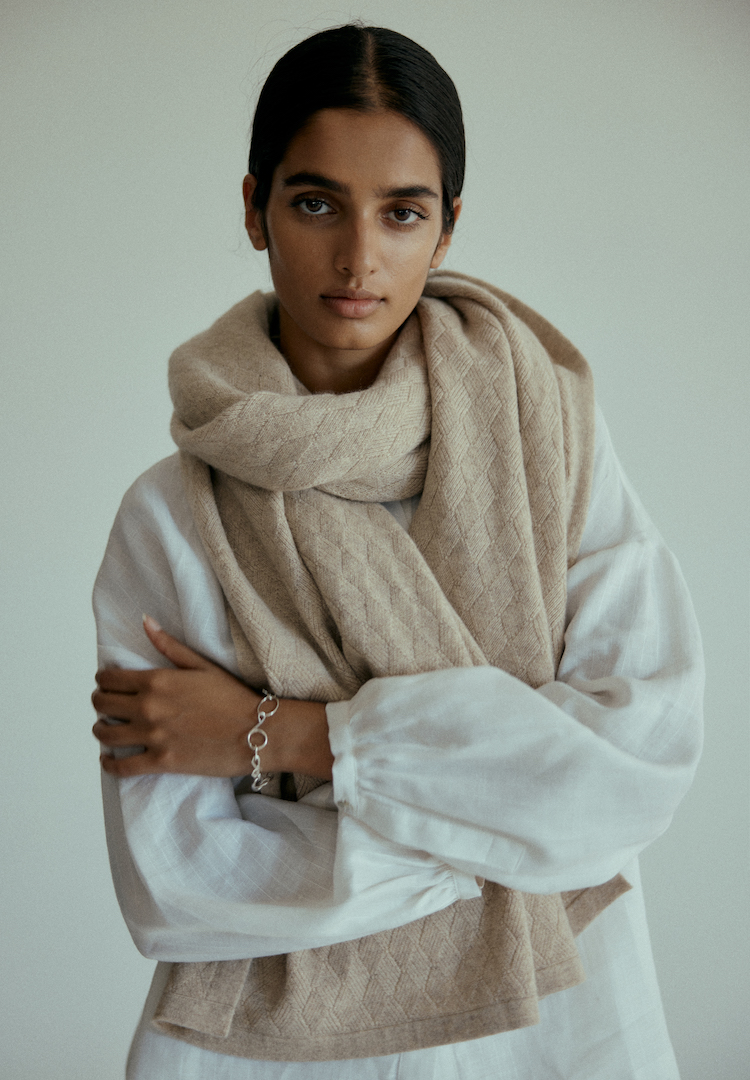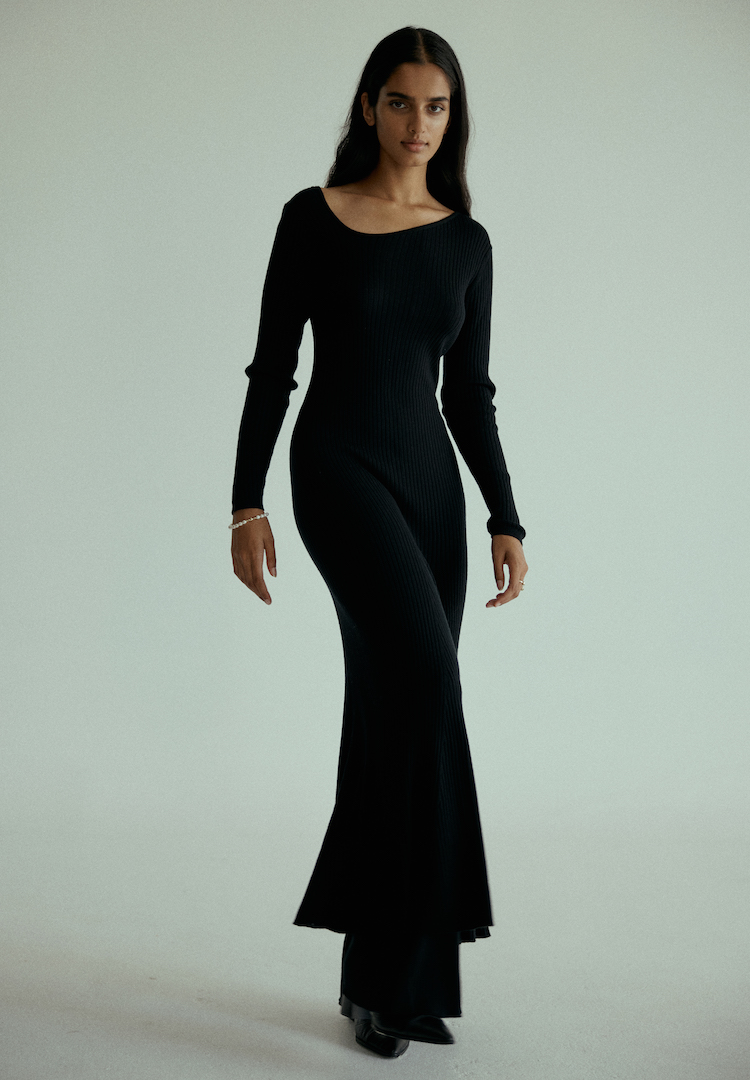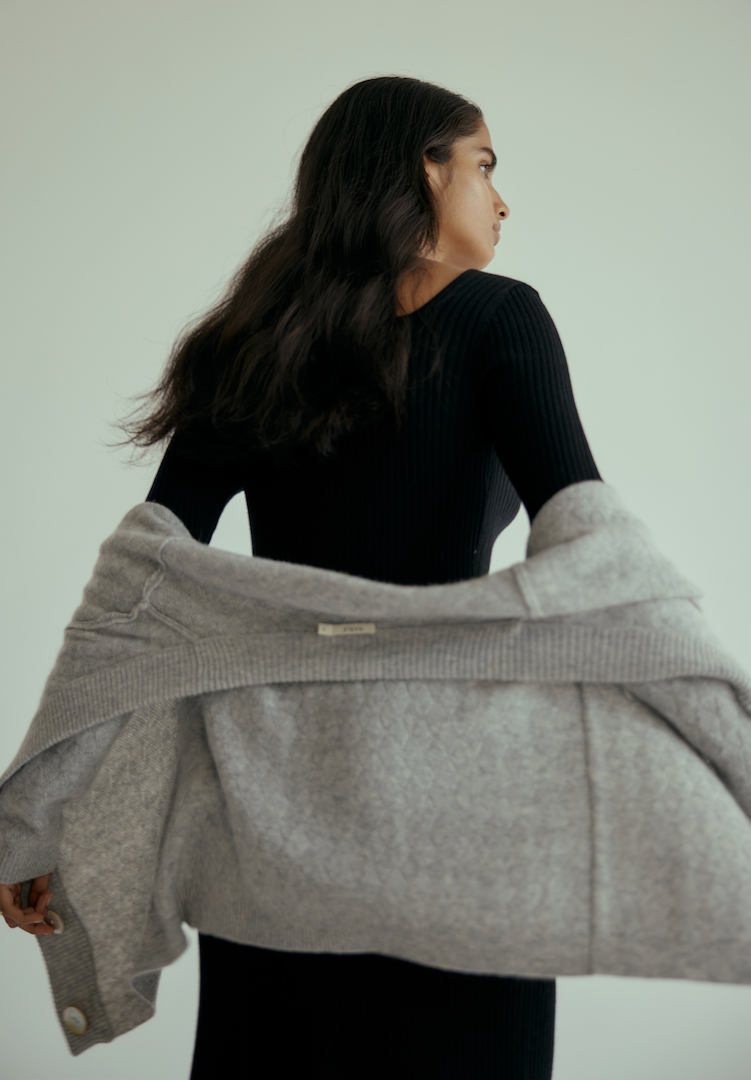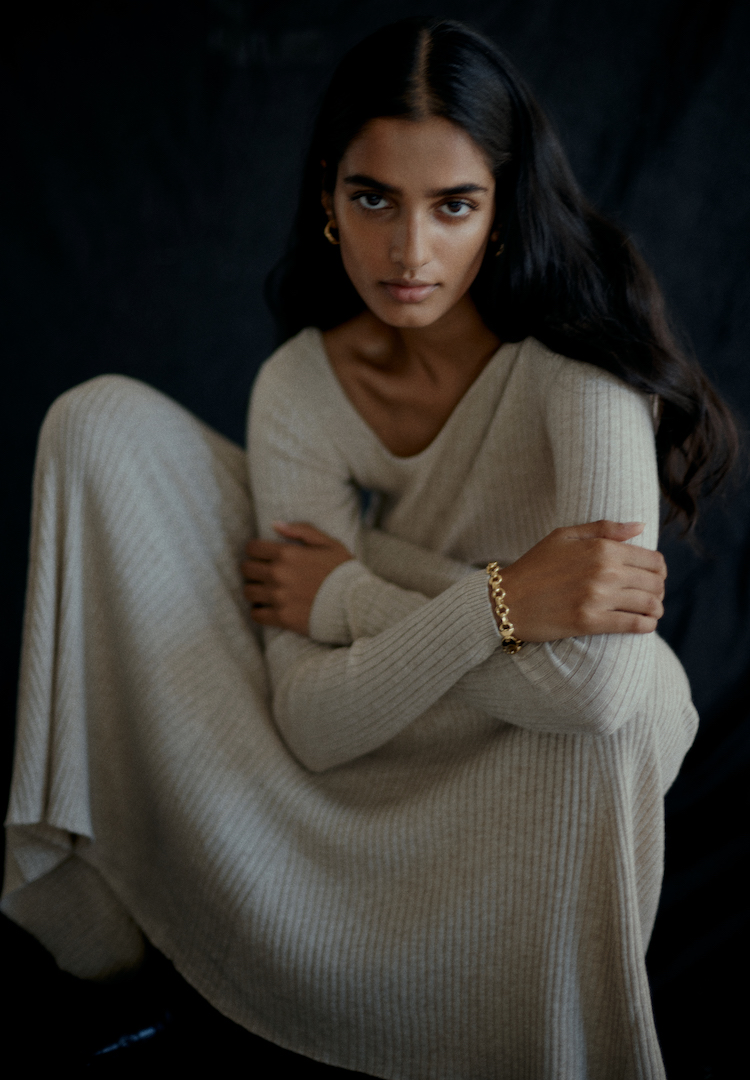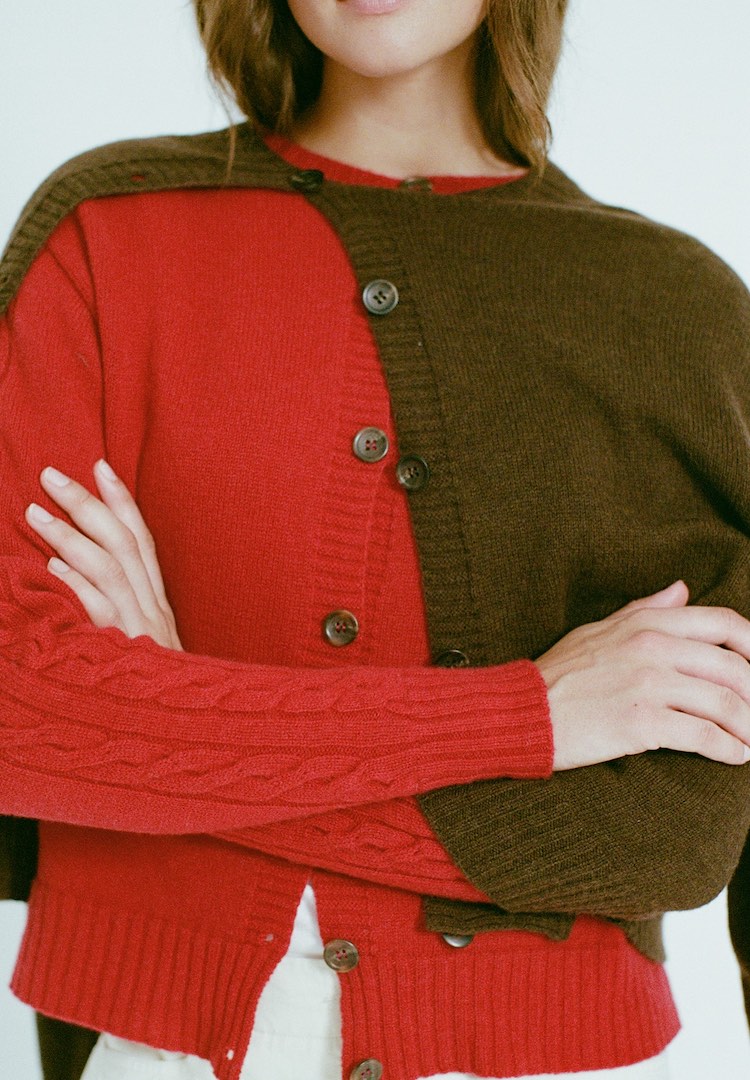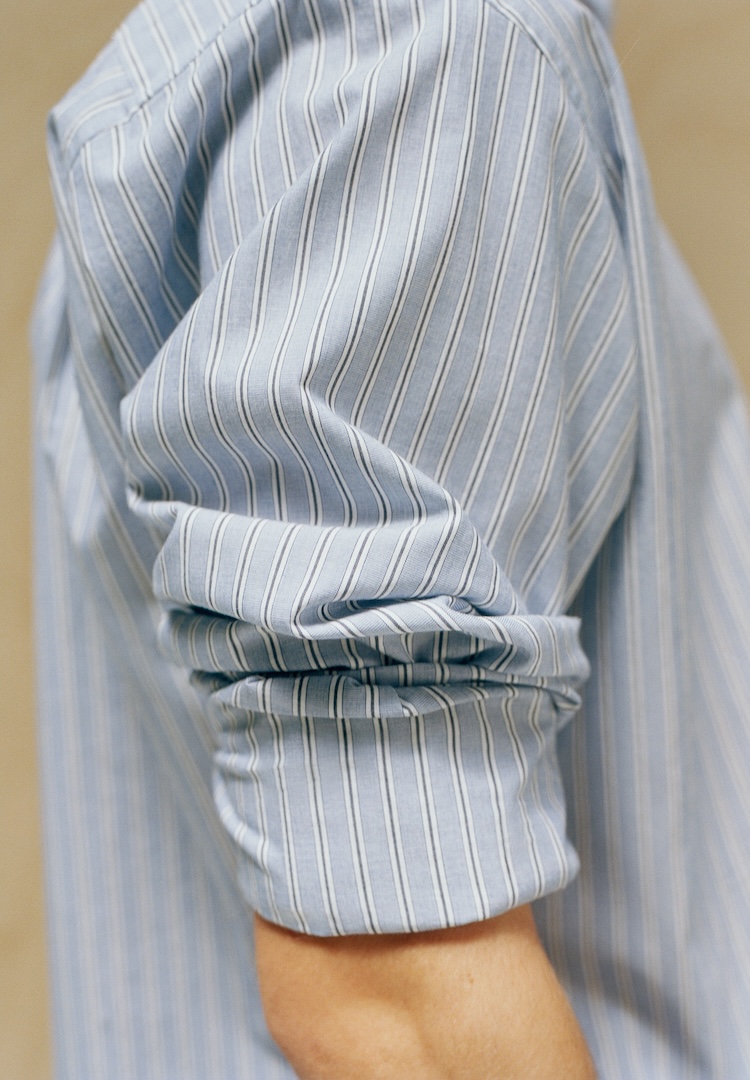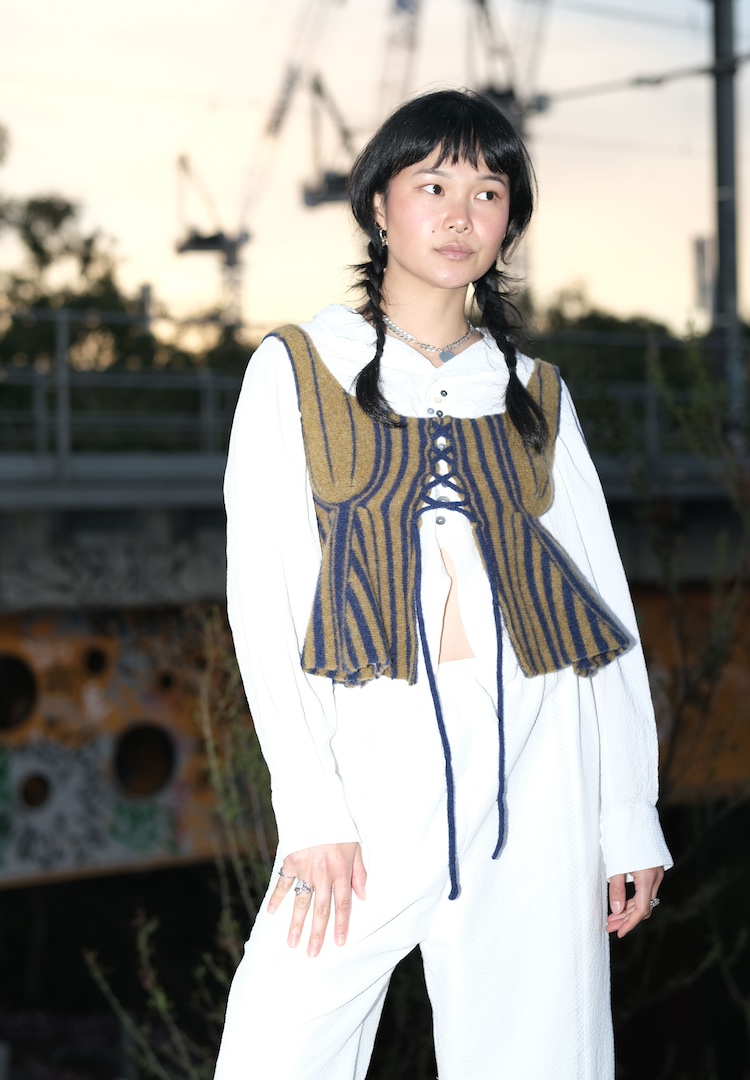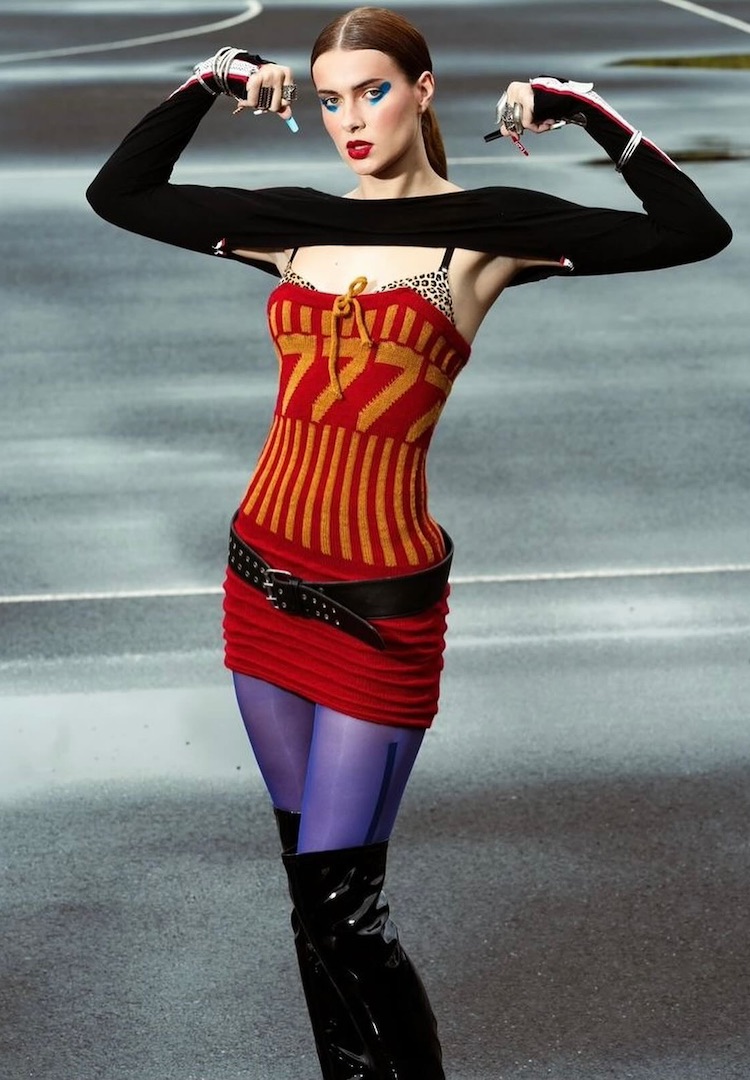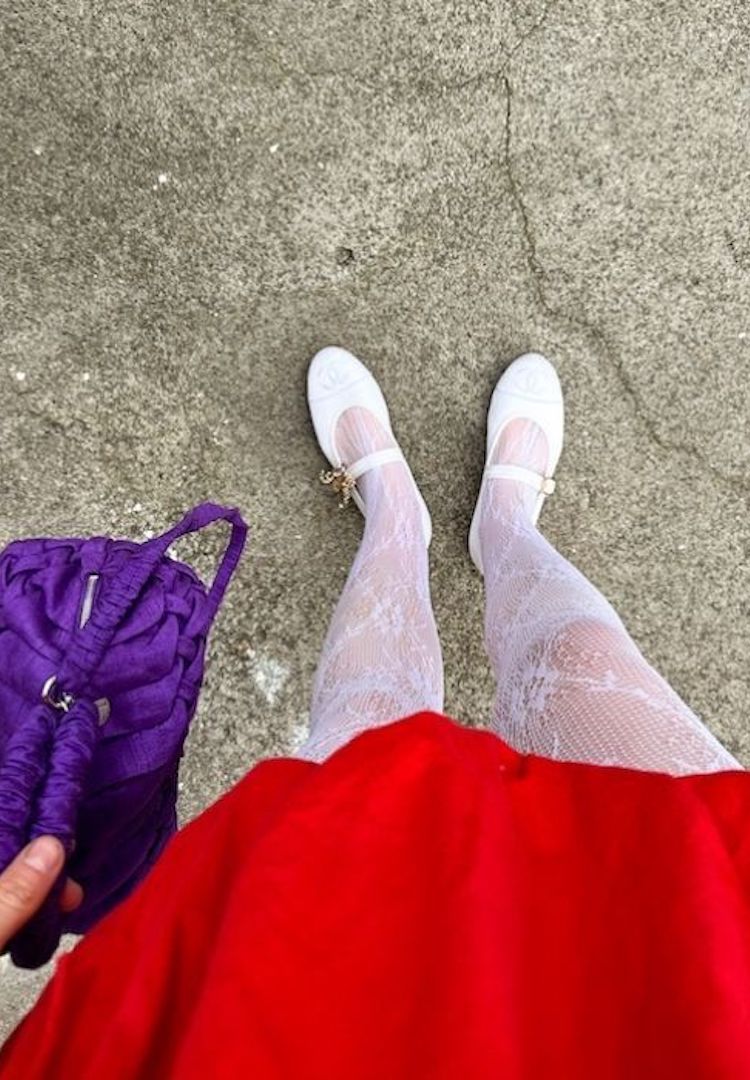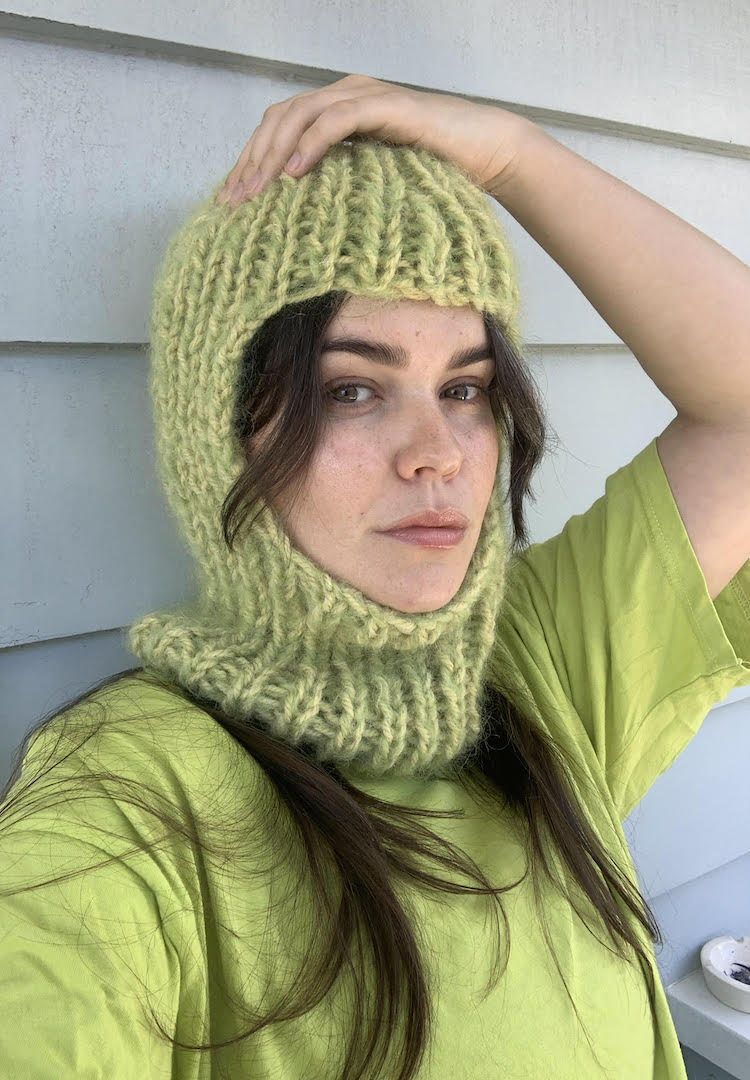New Zealand label Marle is using natural fibres to create knitwear with real longevity
Words by Amanda Gunn
“I want my kids to be proud of me. I don’t want to be putting out things into the world that take hundreds of years to break down.”
Instead of taking a maternity break right after the birth of her first child, Juliet Souter, the founder of New Zealand label Marle, created a luxury label dedicated to knitwear. Impressive, right?
Armed with a clear vision and an affinity for knits, she spotted a gap in the market when she realised there were no knitwear exclusive brands in New Zealand. Putting her years spent working in different areas of the fashion industry to good use, alongside her husband, she set out to create a label made primarily from natural fibres.
Knits galore. Head here to see the Australian labels that have taken over our Instagram feeds.
Using 100 per cent natural fibres not only benefits your skin, but it’s also an incredibly sustainable way of creating biodegradable clothing. Now with a range of stockists across New Zealand, Australia and the US, Marle’s high-quality materials and timeless designs provide consumers with garments they can wear time and time again.
Prior to the launch of Marle’s new winter collection, Obscura, I spoke to Juliet about consciously creating and the importance of designing clothing with true longevity.
What inspired you to start Marle and create low-impact designs?
I have always loved knitwear, and it was something that I have a real affinity for. From the feeling of it on the skin to the casualness and comfort of the materials. I love the way that it is anti-tradition and the unique textures it provides. After working in different areas in the fashion industry and following [the birth of] my first child, I decided I didn’t want to go into corporate. So, I started a business with my husband. In New Zealand, there weren’t any small, modern takes on knitwear. Without a brand that spoke to knitwear exclusively, we started Marle with 10 jumpers.
I decided natural fibres was what I wanted to focus on. This started with the feel of the materials on the skin and the value that they provided. With knits predominantly consisting of a variety of blends, creating something exclusively natural was new at the time. Knitwear is inherently low impact, as there is no material offcuts or wastage. By using only what the garment requires, knitwear provides benefits for the environment.
Where are the natural fibres for your garments sourced?
Our materials are sourced all over the place. Our Oeko-Tex certified parino is produced at a New Zealand superfine merino wool mill. A lot of our materials, including silk, are ethically sourced and made in Hangzhou, China, which is like the silk capital of the world. Lots of other incredible Italian mills are there too. We get mohair from South Africa, and most of our wool is all sourced in Australia. Cotton, linen and hemp come from India and [our] cashmere is sourced in Mongolia.
Is very important to know where our materials are sourced. The fabric mills that we select and consistently work with are chosen because we trust their ethics and quality. All our suppliers know how important sustainability is to us. Sourcing fibres sustainably can be limiting and a challenge when we are trying to look for something we can’t have, but it also provides a bit of a design brief.
View this post on Instagram
Your garments are ‘consciously created’ – what does this mean?
The biggest aspect that I am super proud of, is that we are exclusively natural. This only goes so far and doesn’t encompass everything. We got SEA certified and work with WRAP certified factories, an auditing company that audits factories once a year to make sure everything is up to standards. We also have our own code of ethics and I have been to the factory myself. From using solar heating, and providing proper apartments (rather than living quarters), there are lots of good initiatives going on. Getting those audits costs a lot, but it is important to us to work with certified factories.
Creating timeless essentials is a focus for Marle. When did you realise the importance of designing items that have true longevity, and how does this feed into your design process?
We always focused on designing pieces that wouldn’t overwhelm a wardrobe. Without sounding cliche, they are pieces you can wear day and night. You won’t find overly designed, particularly colourful pieces. We keep it more to essential, investment pieces that you can reach for every day.
Talk me through the inspirations and thought processes behind your latest collection.
The starting point for the majority of our collections is the fabrics and fibres that we use. The factory will sort out what fibres are available, then we will communicate what we are after and send them different swatches. From there we will explore texture and colours for the collection.
Our winter collection is called Obscura and is named after the commissioned piece of art that Sydney-based artist Annalisa Ferraris created for us. Asymmetry is coming through the collection. Asymmetry always has been a detail that I was drawn to, due to the subtleties and silhouettes. By playing with line, it can transform how the garment forms and sits.
Also, there is a topstitching, traditional Japanese sashiko technique featured, that is traditionally used for embroidery and repairing garments. We have brought that through in a more modern, linear way. It is showcased through the front of garments in a contrast stitch and we are exploring this in future collections as well. We also are working with an irregular rib, [we have] changed it with each season, to explore the unexpected nature of irregularity.
View this post on Instagram
With your values rooted in sustainability, workers’ rights, and a will to continuously learn, do you hope this approach will be taken across other brands? How can they adopt more ethical processes?
Absolutely. This is my biggest hope. The more available it becomes and the more is talked about, the more normal it will become. This means a bigger demand, which will benefit everyone – customers and business owners. I hope these practices come into play more. For example, starting by ending the use of plastic poly bags. With so many good options there isn’t really an excuse to still be using them.
How do you believe consumers can make more sustainable decisions?
I am biased, but I believe it comes down to natural fibres and people should make the decision to buy that more. It is more expensive, so it would be naive to ignore that, but it is an investment. If you have the resources, you should look at the fibres that you are putting next to your skin. Also, don’t be afraid to look into the practices of the brand and ask questions.
You have an extensive range of stockists. Is your own store or boutique a future goal?
No, it is not. Never say never, but for now, we are enjoying supporting stockists and the wholesale model.
What does the future look like for Marle, and how do you hope to shape the industry?
Sustainability is a moving target. It is always changing and adapting based on research and the info that is available. I say that it is not a destination, but a journey, and we will continue to make changes as the brand develops.
We are educating customers on what we are doing and want to do this further into the market. The future is still continuing to grow with stockists and I am hoping to move into other enterprises and explore unique fabrics and fibres. For example, there are coconut fibres and pineapple silk, so [I] would love to move into more obscure, natural sources.
I think for me, I want my kids to be proud of me. I don’t want to be putting out things into the world that take hundreds of years to break down. I am very proud of what we have achieved as a brand and am excited to see where it continues to go.
Marle’s new collection ‘Obscura’ launches on Monday May 31 and will be available to shop online here and throughout stockists in Australia, New Zealand and the US.

